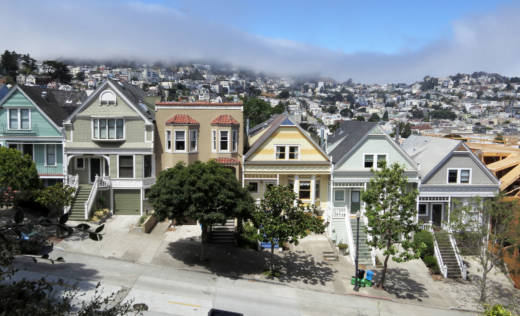Hunt, a single parent, spends an hour and $11 commuting every day on BART from his one-bedroom apartment in San Leandro that he shares with his 1-year-old daughter. He pays $1,650 a month in rent -- and he says it’s going up.
“If the prices would come down, that would help so much,” Hunt said. “I work with more than 70 chefs in the kitchen and most of us live outside of the city.”
Nearly half of those polled described the ability to afford housing in their area to be an "extremely serious" problem. That feeling was most prevalent among Bay Area voters (65 percent) followed by those living Orange and San Diego counties.
The statewide online survey asked 1,200 registered voters in late August and early September about their opinions on housing affordability in their region of the state, local rent control laws and whether they would support a multibillion-dollar bond to help fund housing development.
The poll showed early support, about 51 percent, for a bond, which state lawmakers cleared the way for last week.
SB 3, if signed into law, would ask California voters in November 2018 to approve a $4 billion general obligation bond that would fund a home ownership program for veterans, grant money to cities building affordable housing projects in infill and around transit centers, and would fund low-income housing for farmworkers.
“If SB 3 passes, it will be a big boost to affordable housing development in the state,” said Dan Schoenholz, deputy director of community development for Fremont. “It is hard to say as an individual city how much would make its way to us.”
Cities like Fremont are evaluating how 15 housing bills passed by the Legislature last week will affect them. But one piece of legislation, AB 1505, could quickly come into play for cities like San Jose.
AB 1505 would allow cities to require developers building market-rate rental units to also include a certain percentage of affordable rentals. This is called an inclusionary housing ordinance. Many cities have adopted similar ordinances that apply to housing developments of for-sale units, but not rentals, because a 2009 court decision interpreted this to be a form of rent control.
So, some cities such as Oakland and San Jose introduced impact fees that charged developers building rental projects.
Michele Byrd, housing and community and development director for Oakland, said the legislation could affect new rental projects that the city collected applications for last Friday from developers.
“I’m really excited about how many projects we got,” Byrd said. “We’re expecting 10 to 15 new affordable housing construction projects.”

